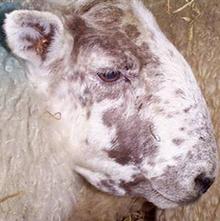Poor timing is hampering fluke treatment

Poor timing of flukicide treatment is a big obstacle to effective fluke treatment, says Nigel Underwood, Janssen Animal Health.
This comes in response to a recent survey, carried out in conjunction with the National Sheep Association, which looked at farmers’ attitudes to fluke control.
“About 61% of the 400 farmers surveyed considered fluke to be a major threat to their farm, with 86% having diagnosed fluke in their flock in the last three years.”
The survey reported a peak in the disease in autumn, but still reported 70% of the autumn level in spring.
“This could be an early indication of inadequate control programmes,” says Mr Underwood.
“Less than 20% of farmers were shown to use a strategic fluke control programme, with 36% of farmers choosing one-off single month doses.”
Most of these doses were given in autumn, but some were given at less appropriate times of the year.
Reports of resistance to triclabendazole are a concern, with 10% of respondents reporting suspected resistance on their farm, but these results show timing of dosing is another big problem, says Mr Underwood.
“This year with the fluke challenge at its highest, two or more doses may be needed on many farms and year round strategic approaches should be considered for long-term control in endemic areas.”
